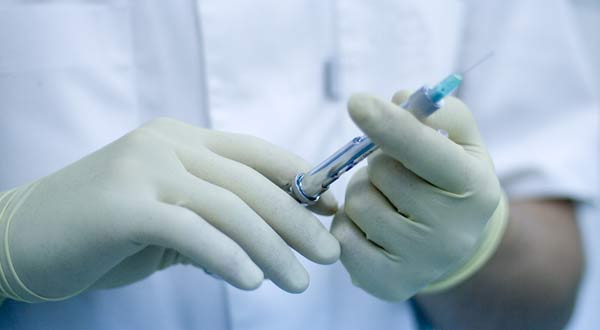Should the HPV Vaccine Be Mandatory? Health Experts Weigh In

In last night's GOP presidential candidates debate, Rep. Michele Bachmann attacked Texas Gov. Rick Perry for his 2007 legislation mandating, through an executive order, that the human papillomavirus (HPV) vaccine be given to young girls in his state.
"I'm a mom. And I'm a mom of three children. And to have innocent little 12-year-old girls be forced to have a government injection through an executive order is just flat-out wrong," Bachmann said during the debate. "It's a violation of a liberty interest."
The HPV vaccine protects against strains of HPV that cause cervical cancer. According to the American Academy of Pediatrics, about 6 million people in the U.S., including teens, become infected with HPV and 4,000 women die from cervical cancer every year.
The issue of whether to mandate the HPV vaccine has spurred debate for years. Some have argued the vaccine may increase sexual activity among adolescents, or that it counters messages of abstinence education. We asked experts to weigh in on the question: "Should the HPV vaccine be mandatory for girls ages 11 to 12 in the United States? Why or why not?" Here are their responses:
Arthur Caplan, bioethicist at the University of Pennsylvania: "Yes. The data show that the vaccine is safe and effective. Mandates ensure money is there to pay for access. And mandates still permit people to opt out if they don't want their child vaccinated, as we have for all other 'mandates' — a fact somehow lost in the ignorant comments from GOP candidates about HPV vaccines [last night]."
Dr. Paul Offit, chief of the Division of Infectious Diseases and the director of the Vaccine Education Center at the Children's Hospital of Philadelphia: "I think it shouldn’t have to be [mandated]. I think anybody who knows what this virus could do, and what this vaccine can do, would get the vaccine every time. But there's so much misinformation out there that leads people to make the wrong choices for themselves and their children," Offit said.
Bachmann perpetuated that misinformation when she implied later that the vaccine could cause permanent harm to children, Offit said. "She's dead wrong about what that vaccine does." Offit said the vaccine is safe and effective. If it was given to 100 percent of young girls today, then 20 to 25 years from now, there would be an 80 percent reduction in cervical cancer incidence, he said.
Sign up for the Live Science daily newsletter now
Get the world’s most fascinating discoveries delivered straight to your inbox.
Dr. William Schaffner, chairman of preventive medicine at Vanderbilt University School of Medicine: "The HPV vaccine is a wonderful advance in the prevention of cancer — for girls and women certainly, but also for boys and men.
I hope that all young girls will be vaccinated. Whether all girls should be mandated to receive the vaccine is best left to the public in each state where the issue can be discussed and debated. My prediction is that, slowly, state by state, such mandates will be enacted because the vaccine is safe — and who does not wish to prevent as much cancer as they can?"
Alta Charo, professor of law and bioethics at the University of Wisconsin, Madison: "Given that the moral objections to requiring HPV vaccination are largely emotional, this source of resistance to mandates is difficult to justify. Since, without exception, the proposed laws permit parents to refuse to have their daughters vaccinated, the only valid objection is that parents must actively manifest such refusal. Such a slight burden on parents can hardly justify backing away from the most effective means of protecting a generation of women, and in particular, poor and disadvantaged women, from the scourge of cervical cancer." [Charo's comments are from a 2007 Perspective in the New England Journal of Medicine; she told MyHealthNewsDaily today those comments still reflect her opinion.]
This story was provided by MyHealthNewsDaily, a sister site to LiveScience. Follow MyHealthNewsDaily staff writer Rachael Rettner on Twitter @RachaelRettner. Like us on Facebook.

Rachael is a Live Science contributor, and was a former channel editor and senior writer for Live Science between 2010 and 2022. She has a master's degree in journalism from New York University's Science, Health and Environmental Reporting Program. She also holds a B.S. in molecular biology and an M.S. in biology from the University of California, San Diego. Her work has appeared in Scienceline, The Washington Post and Scientific American.
Flu: Facts about seasonal influenza and bird flu
What is hantavirus? The rare but deadly respiratory illness spread by rodents










